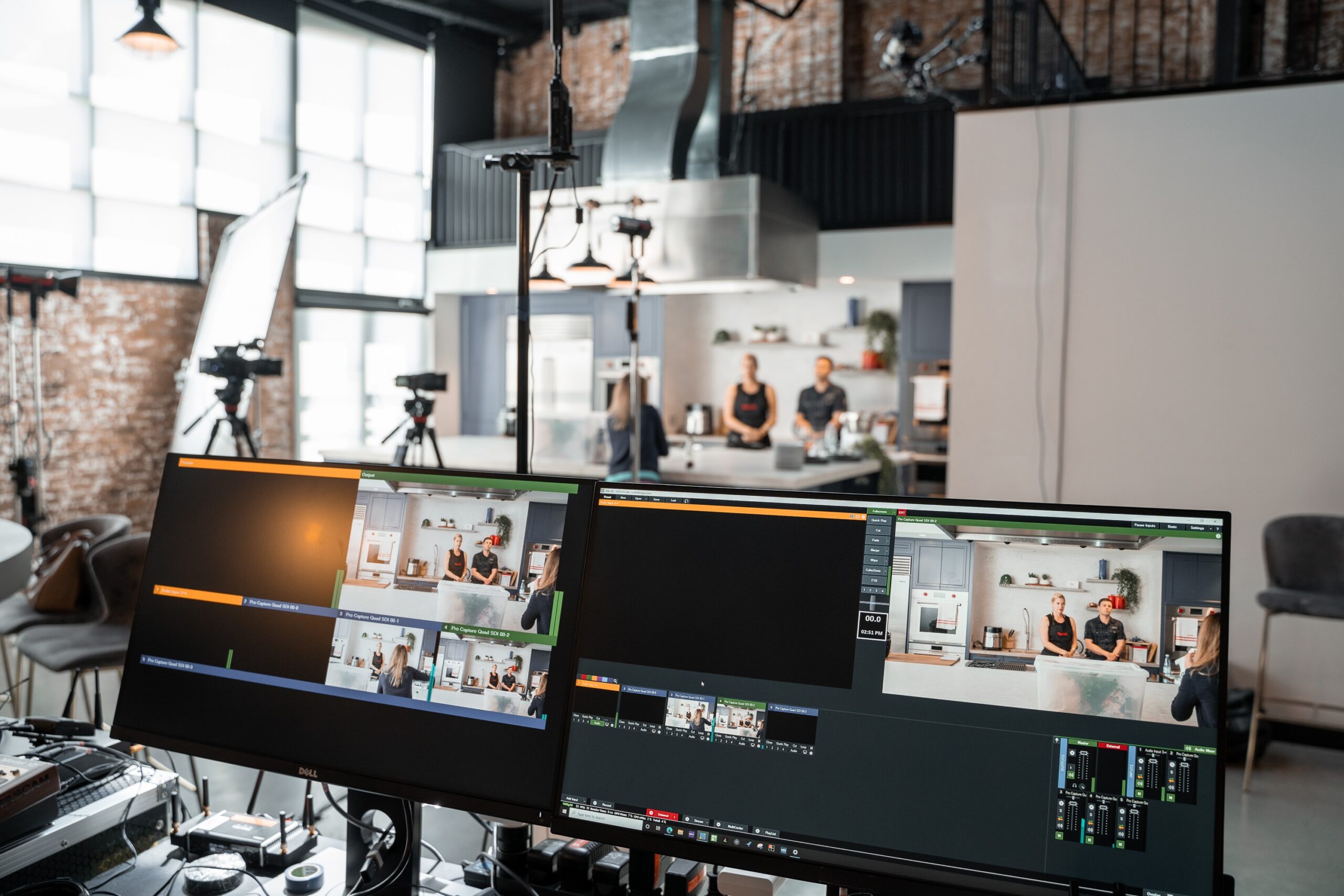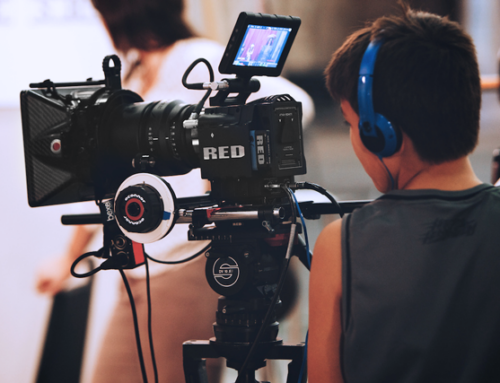Professional video production is a complex process that involves several stages, each with its own set of tasks and objectives. In this article, we will discuss the different stages of professional video production and what they involve.
Pre-production –
The pre-production stage is the planning phase of video production. It is where the creative concept and ideas for the video are developed and the production team is assembled. This stage includes tasks such as writing a script, creating a storyboard, scouting locations, and casting actors or talent. It is also where the production schedule and budget are established.
Here are some important things to know about video pre-production:
- Concept development: The pre-production stage is where the creative concept and ideas for the video are developed. This includes writing a script, creating a storyboard, and determining the overall look and feel of the video.
- Assembly of production team: The pre-production stage is also when the production team is assembled. This includes hiring a director, camera operator, lighting and sound technicians, as well as any necessary actors or talent.
- Location scouting: Pre-production is the stage where the locations for the video are scouted and secured. This includes finding locations that match the aesthetic of the video, as well as ensuring that the location is available for filming on the planned shoot dates.
- Budgeting: Pre-production is the stage where the production schedule and budget are established. It’s important to consider all the costs involved in the production, such as equipment rentals, crew fees, location costs, and any other expenses.
- Scheduling: The pre-production stage is where a production schedule is created and must be planned meticulously. The schedule will include shoot dates, prep work, post-production and delivery deadlines.
- Rehearsals and table reads: Rehearsals and table reads are important in pre-production to make sure the script is working, that actors know their lines and that the director knows the best way to stage and shoot the scenes.
Overall, the pre-production stage is a critical step in the video production process. It’s essential to take the time to properly plan and prepare for the production in order to ensure that the final product is of high quality.
Production –
During the production stage, the video is actually shot. This stage involves setting up equipment, lighting, and sound as well as capturing footage. The director and camera operator work together to direct the actors and capture the desired footage. It’s a crucial stage that requires careful planning and execution in order to achieve the desired results. Here are some important things to know about the production stage of video production:
- Equipment setup and preparation: The production stage starts with setting up and preparing all the necessary equipment, such as cameras, lighting, and sound equipment. This process must be done accurately and efficiently to ensure that the equipment is working properly and ready for filming.
- Directing and Camera work: During the production stage, the Director and the Camera operator work closely together to guide the actors, and achieve the desired visual style and shots. This stage is critical to get the correct takes, angles and pacing of the video.
- Lighting: Lighting plays a crucial role in the production stage of video production. The lighting is used to create the desired mood and look of the video. It’s important to understand how to properly light a scene in order to achieve the desired results.
- Sound recording: Sound is an essential element of video production, and proper sound recording is crucial to achieve high-quality audio in the final video. This includes capturing dialogue, sound effects, and background noise in a way that will work well with the video.
- Continuity: Continuity must be considered throughout the production stage to ensure that the final video appears cohesive and flows smoothly. This includes continuity of movement, location, time, and wardrobe.
- Flexibility: Production is a dynamic process and it’s important to be flexible and adapt to unexpected changes and problems. A good production team must be able to work together to overcome challenges and make necessary adjustments to ensure the success of the production.
The production stage is an important step in the video production process. It’s essential to take the time to properly plan and prepare for the production in order to ensure that the final product is of high quality. The right gear and techniques, good direction and coordination between the team, good communication and patience can help to make the most out of the production stage.
Post-production –
In the post-production stage, the footage captured during the production stage is edited and assembled into the final video. It’s a critical stage that requires careful planning and execution in order to achieve the desired results. Here are some important things to know about video post-production:
- Editing: The first step in post-production is editing the footage to create a rough cut of the video. This includes selecting the best takes, cutting and splicing the footage, and assembling it into a coherent story. The editor will also work with the director to shape the story and make sure that it’s telling what was planned during pre-production.
- Color Correction and Grading: The next step is to color correct and grade the footage. This process involves adjusting the color and lighting of the footage to match the desired aesthetic and mood. The editor also corrects any technical issues such as color imbalances and camera noise
- Visual Effects and Motion Graphics: Visual effects (VFX) and motion graphics can add an extra layer of realism or creative flair to the video. These elements can be added in the post-production stage, and they can be a fundamental part of storytelling, when it comes to explain certain ideas or concepts that can’t be shown with live-action footage.
- Sound Design and Music: In post-production sound design and music is added to the video. This includes adding sound effects and foley, as well as creating a final audio mix. The music is also chosen and added to fit the tone of the video.
- Finalizing and exporting: Once the video is completed, the final version is exported and delivered to the client in the format requested. This may include delivering the final video in multiple formats for different platforms, and creating a version for broadcast or streaming.
Post-production is a critical stage in the video production process. It’s where the footage captured during production is transformed into a polished and final video that meets the creative and technical requirements established during pre-production. Attention to detail and good communication between the post-production team and the client is important to make sure that the final product is of high-quality and that the client’s expectations are met.
Delivery –
The final stage is the delivery stage where the final video is sent to the client or uploaded to the internet. The production company also delivers any additional materials such as raw footage, copies of the final video, and any necessary documentation. The final video is then reviewed by the client and any necessary changes or revisions are made. It’s important to take the time to properly plan and prepare for the delivery stage in order to ensure that the final product is of high quality. Here are some important things to know about the delivery stage of video production:
- File Formats: Before delivering the final video, it’s important to determine the file format(s) required by the client. This may include different formats for different platforms such as broadcasting, streaming, or social media. The final video should be exported in the appropriate file format and resolution for the intended purpose.
- Backup and Archiving: It’s important to create backups and archives of the final video and all the project’s files and assets. This is important for the client and also for the production company, it helps to have access to the files in case a client requests additional edits or changes in the future.
- Quality Control: Before delivering the final video, it’s important to conduct a final quality control check to ensure that the video meets the technical and creative specifications set out in pre-production. This includes checking for issues such as visual artifacts, audio problems, or any other technical issues.
- Delivery Timeline: The delivery stage should also consider the delivery timeline established during pre-production. It’s important to deliver the final video to the client within the agreed-upon time frame, and also allow time for revisions and changes if needed.
- Legal Issues: The delivery stage of video production is also when any necessary legal documentation is completed, such as release forms for actors or locations. It’s important to ensure that all legal requirements have been met before delivering the final video.
The delivery stage is an important step in the video production process. It’s where the final product is delivered to the client and any necessary revisions are made. The ability to deliver high-quality final videos, on time, in the appropriate format and with the necessary legal and technical documentation is crucial to a good working relationship with the client and sets the tone for future projects.
The process of professional video production is an involved one that requires a team of skilled individuals working together to bring a creative concept to life. Each stage of the process is important and must be executed correctly in order for the final video to be of high quality.
It is important to note that not all video production will go through all these stages and it may vary on the size, scale, and the type of video, some stages might be more developed while others are simpler. Also, each stage might have more or less tasks to be accomplished, depending on the specific project, but this general overview should give you an idea of the main stages of professional video production.
Are you ready to grow your business with expert video production? Then contact Angel Fenix Productions TODAY to chat about your company’s video needs at: info@AngelFenix.com





